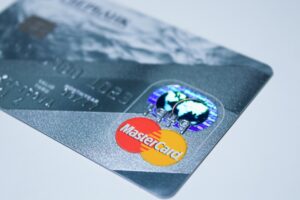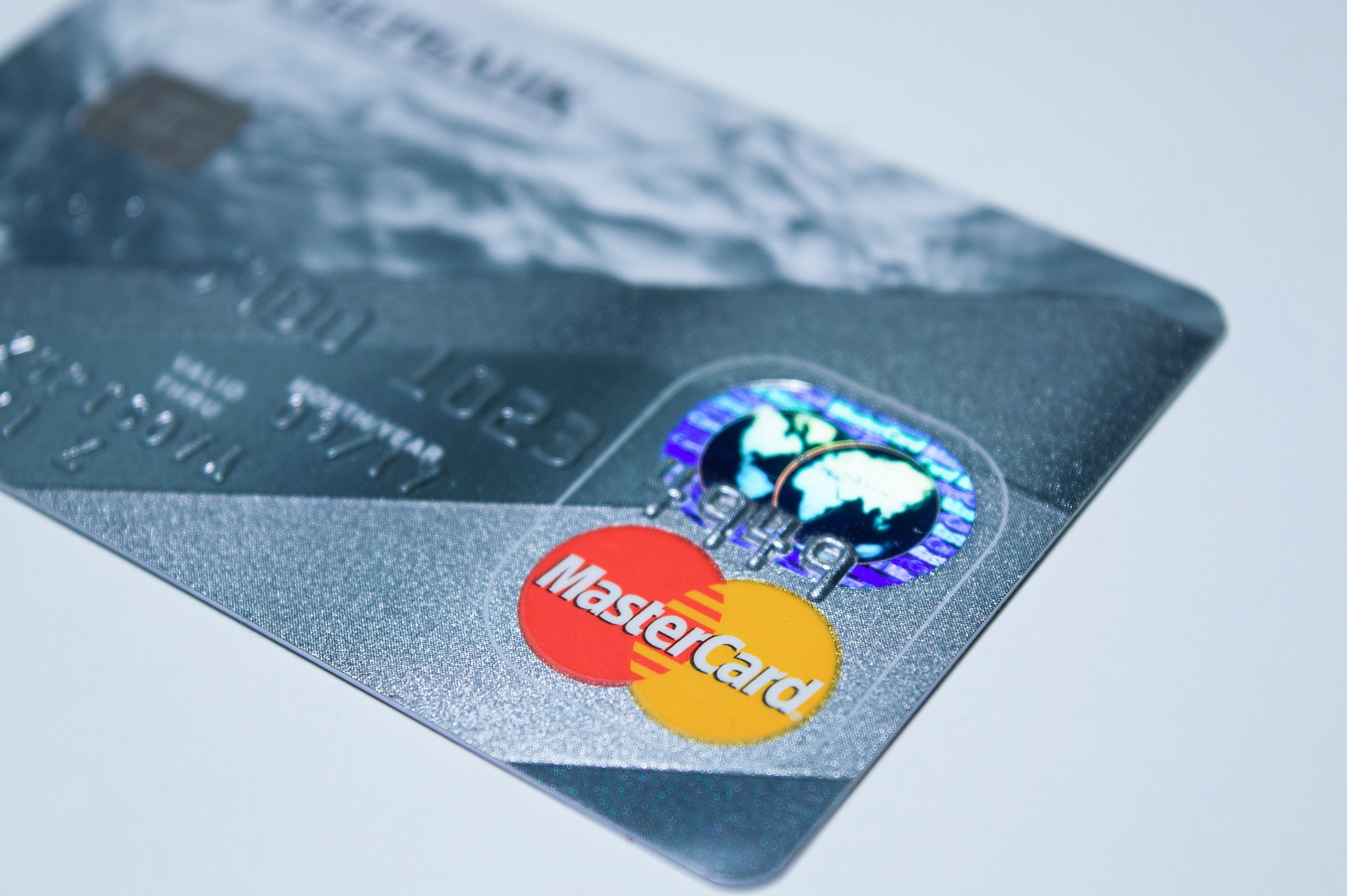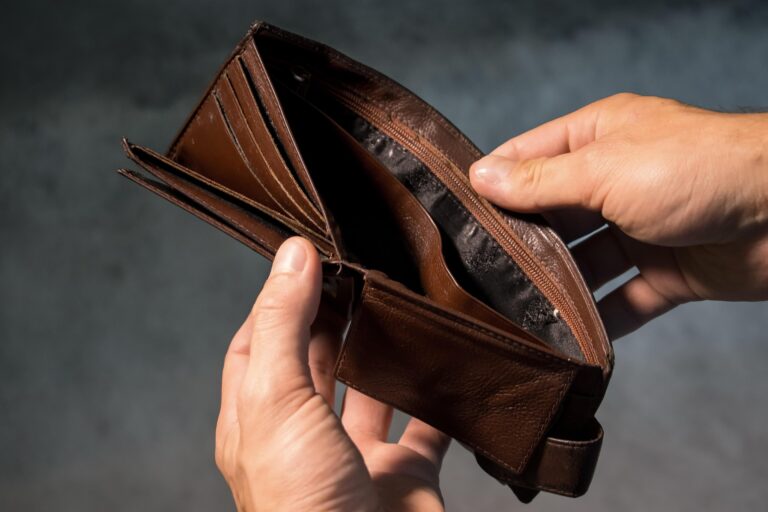How Many Credit Cards Should You Have in Your Wallet?
The Scorching Point is reader-supported. When you buy through links on our site, we may earn an affiliate commission. See more info here.

How do you go about finding the perfect number? Do you need to start applying for new credit cards immediately, or is it time to scale down some? As with most personal finance matters, the answer turns out to have a few sides.
What’s the Ideal Number of Credit Cards?
Unfortunately, no single, ideal number of credit cards will be perfect for everyone. Instead, the number of credit cards you should have is specific to your situation, preferences, goals, and financial health.
Many people find a small handful of cards to be the sweet spot. Data from Experian show that the average American holds between three and four credit cards.
However, that doesn’t mean this number is the best fit for everyone. For example, holding only one card, or even none, may be the best option for some people. At the other extreme, there are travel hackers and credit card optimizers who manage to earn lucrative rewards from a dozen or more cards.
As is often the case with effective money management, the ideal solution here will be the one you decide is best for your life. Before we do that, it would be best to consider some of the trade-offs of managing multiple credit accounts at once.
Benefits of Having Multiple Credit Cards
Having a wallet with at least a few credit cards can benefit your finances in several ways. Individually, most modern credit cards offer various benefits, including:
- Cash sign-up bonuses
- Points, miles, or cash back
- Access to exclusive discounts, deals, and memberships
In the simplest way of looking at things, the more cards you have, the more exposure you have to these various benefits. While things are a little more complex than that in practice, the effect of stacking these rewards is worth considering.
More cards can also benefit your FICO score, provided you pay your bills and keep all of your accounts in good standing.
For one thing, more lenders and lines of credit in good standing can usually help you build credit. Each new line of credit you open leads to a higher overall credit limit and, by extension, a lower card utilization rate. Credit card companies love to see cardholders using a relatively low percentage of their available credit limit.
Downsides of Having Too Many Credit Cards
Cash rewards and a stellar credit rating aside, it would be unwise to sign up for a bevy of credit cards without first considering the risks. The downsides of carrying too many credit cards range from inconvenient to financially dangerous.
For one thing, managing a mix of credit and debit cards can be a logistical burden. Keeping track of it all gets more difficult the more accounts you add. Online budgeting apps and tools with features like autopay and e-statements can somewhat mitigate this challenge but won’t eliminate it altogether.
More importantly, carrying more credit card accounts than you can handle could be dangerous to your financial health. Fees and penalties from several different accounts can add up quickly, and the more complex bookkeeping involved makes it far easier to make a billing mistake. On top of all that, things like late payments and accounts in poor standing can leave you with poor credit.
If you have had trouble managing credit cards in the past, either logistically or financially, you will likely want to be aware of this risk before adding more cards into the mix. Adding cards will make those challenges worse before it makes them better. If you need professional help, consider hiring a Certified Credit Counselor who can work with you on a plan to reduce your debt and feelings of stress.
A Few Factors to Consider
Rather than a one-size-fits-all number of credit cards that everyone should stick to, it is instead a more individual process to determine the sweet spot for your finances.
Take some time to consider each of the following factors, and then use them to help determine how many credit cards make the ideal number for your situation.
What You Use Your Credit Cards For
The types of transactions you use credit cards for may contribute to finding your ideal number of cards.
One card may be fine if you prefer debit cards or cash and only keep a credit card around for infrequent purchases or emergencies. Alternatively, if you are hoping to maximize your rewards and benefits, you would probably do best with a few different types of credit cards.
What are some of the most significant expenses in your budget besides housing? Most likely, it includes some of the following:
- Groceries
- Dining out
- Entertainment
- Shopping
- Gas and transport
- Travel
There are credit cards that offer specialized rewards for each of these spending categories and many more. Many people find that having rewards cards to repay a portion of their expenses in 2-3 of these categories can be quite a benefit without becoming too much to manage.
Your Credit History and Credit Score
As discussed above, the number of credit cards you hold can affect your creditworthiness. Likewise, your credit profile may influence which cards you can have.
If you have a spotty credit history and have previously had trouble keeping up with your debts and making monthly payments, it will be harder for you to qualify for the best credit cards and interest rates. It may also be a sign that managing many cards is not the healthiest move for you right now.
Adding more cards to your financial ecosystem can build your credit score in multiple ways, but it can also be detrimental in a few ways. Therefore, before increasing or decreasing the number of cards you own, it is a good idea to check your credit report to see where things stand today.
Optimizing vs. Simplifying
One debate that has always divided the personal finance community is the inclination towards optimization vs. simplicity.
There are many areas of money management, including debt, investing, and budgeting, where one faces a choice. One can choose whether to pursue things in a mathematically optimal way or in a way that may forgo a portion of the returns in favor of simplicity and emotional peace.
In most of these cases, our choice falls somewhere on a spectrum. Credit cards are one such case.
By carrying only one or two credit cards, you likely leave some rewards on the table. In exchange, you have fewer bills to track, less need to think over which card to use when, and a lower risk of building a poor payment history.
With a large number of credit cards, you may manage to accumulate considerable rewards, significant available credit, and strong credit scores with the three major credit bureaus. However, optimizing your credit card situation requires substantial research, bookkeeping, and attention to which payment methods you use at which times.
In this case, you may be able to look to other areas of your life as a guide.
Do you often lean towards simplicity, optimization, or something between the two? Aligning your selection of cards to this historical preference is likely to cause you the least internal difficulty.
Fees and Penalties
Fees are one of the most common ways credit cards can cause trouble, particularly for those with bad credit.
Of course, there are plenty of great options for free credit cards with no annual fee. And provided you use yours responsibly and pay off your balances on time every month, there is no need to worry about penalties such as late fees.
As you look over various card offers to consider adding them to your credit lineup, fees may not be the be-all-end-all, but they are still worth some of your attention.
For instance, one or two cards with an annual fee might make sense. Many annual fee cards easily earn their keep with the rewards they offer. However, if you find yourself paying eight annual fees on eight different accounts, breaking even on those fees would be much more challenging.
Again, it is worth considering your history and typical bill-paying habits here. Falling behind on one credit card with a late payment is a bummer; falling behind on six is a nightmare waiting to happen.
For a highly disciplined credit card user, fees may play little to no role at all. But if we were all highly disciplined credit card users, then the credit card issuers of the world likely wouldn’t have a viable business model.
Finding the Right Number of Credit Cards for You
Everyone wants to know exactly how many credit cards they should have in their wallet for optimal rewards and financial health. The good news is that number does exist. The trickier news is that it’s a different number for each person’s situation.
Like so many other areas of personal money management, the world of credit cards is a deep ocean of options. While this can be overwhelming initially, it is a great thing. This wealth of possibilities means that there are enough options for everyone to find the perfect fit and balance for their lives. With a bit of insight and a dash of foresight, you will have everything you need to determine the ideal credit card rotation for your situation.
This article originally appeared on Hello Sensible.







